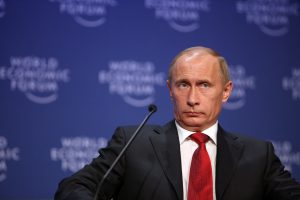This aspiration knows no boundaries. It was this aspiration that brought down the Iron Curtain in 1989. It was the one that led the Iranians to demonstrate for six months in 2009. It was also the one that sparked the Arab Springs of 2011, whose strength and provisional failure are so reminiscent of the European Spring of 1848. It is again the same one that had raised Hong Kong before giving the Belarusians the courage to defy their despot, and this aspiration for freedom announces, without a doubt, the awakening of a Russia that we feel so tired of living too long in a state of constantly going backwards.
So, no! Don’t let anyone, not a single Mr. Xi, not a single ideologue of the new right-wing movements, not a single Mr. Putin or Mr. Orbán, challenge the universality of the ideals of democracy and the rule of law that the European Union has made its fundamental values. On the contrary: let us continue to defend them, always and everywhere, because all of humanity shares them and they are our strength – but this is not the only lesson of the Belarusian revolution.
The second one is that the Russian regime is reaching its limits.
Putin has annexed Crimea but has lost Ukraine. He brought war into Eastern Ukraine but he will either have to withdraw from it or take over its reconstruction. In Ukraine, Mr. Putin has led Russia to a dead end while in Libya nothing is simple for him either, and in the Middle East, the Iranian regime, his only ally, is losing its Iraqi and Lebanese positions and is sinking into an economic crisis that is increasing its unpopularity.
Even if the power of the Russian regime to cause nuisance is considerable, only the weapons are modern in this poor power that is Russia. The infrastructure there is in ruins, the standard of living is falling and oil revenues are plummeting. As a result, social discontent is growing in Russia. The popularity of its president is steadily declining and the simultaneous demonstrations in Khabarovsk and Minsk have everything to worry Mr. Putin who, long before they broke out, had decided to govern only from the shadows and to leave only political “fuses” in the front line.
This regime, in a word, is weakening even as the determination of the Belarusians is forcing it to choose between several equally risky options. One is the military intervention that would create in Minsk the same Russophobia as in Kiev. The other is the continued dispatch of civilian and police reinforcements, which will not be enough to save reigning the power. The last is a replacement for Alexander Lukashenko which, even if negotiated with the Kremlin, could give some ideas to the Russian people about changes in the leadership of their own country.
For Vladimir Putin, the moment is so difficult that there is unfortunately nothing surprising in the attempt on the life of Alexei Navalny, the only opponent to embody the possibility of a renewal since the assassination of Boris Nemtsov five years ago.
Mr. Putin’s friends are determined to clear the air. All this illustrates how concerned this this regime really is; and as for the third lesson of the Belarusian revolution, it is that the European Union must continue to take as much care as the Belarusians to avoid making their country the playground of rivalling powers.
It is by continuing to offer mediation that the Union will be useful to the Belarusians and to freedom. If Europe can play a real role in this crisis, it is by demanding, night and day, the release of political prisoners, by creating a movement of opinion in its 27 Member States, by urging Mr. Lukashenko to return to reason and by asking to be received, as a matter of urgency, by the Russian President to urge him to be realistic and to let the whole world and his country witness it. “Do you want to have influence, Mr. Putin?”, we should ask him, “and do you want Russia to matter in the world? Well, defend the law and the concord in Belarus and this way you will defend, the interests of Russia, its image, its influence and its role as a responsible power, instead of constantly undermining it.”



